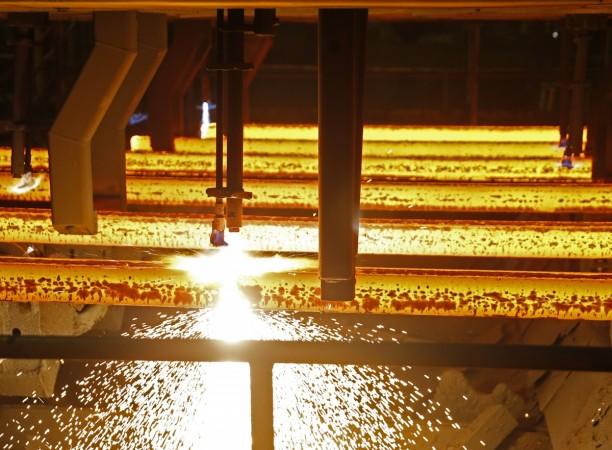
The government's decision to extend floor price on steel imports is likely to provide support to pricing of the commodity in the near-term amid fears of a dip in construction activity owing to continuing cash crunch in the system. However, the upside will be limited despite rising cost of input prices like coking coal, domestic steel firms said.
In order to protect domestic steel producers from cheap Chinese imports, minimum import price was imposed on steel imports in February this year for six months, making it the first time in 15 years. This was later extended twice till December.
With the third extension last week, officials of domestic steel firms have opined that this would provide some support to steel prices, which otherwise is likely to be under pressure on the back of demonetisation move.
Interestingly, domestic steel prices have risen post imposition of this anti-dumping duty by India to check cheap imports from China, South Korea and Japan. Domestic hot-rolled coil prices, which was around Rs 29,250 per tonne in July, increased to Rs 33,750 per tonne in November.
"Steel prices have moved up mainly due to higher cost of coking coal. Apart from that minimum import price imposed by the government have resulted in fall in imports, supporting such rise," a spokesperson of Essar Steel told International Business Times India on Tuesday.
Discussing the impact of demonetisation on steel producers, he said it would be more on long product producers, which cater to the needs of the construction industry. "We are into manufacturing of specialized steel, which is used in auto and white good products," he said, adding the effect of demonetisation would be minimal as most of these companies procure steel well in advance as per their demand forecasts. Even rising exports will somewhat minimise the impact of fall in demand in coming months, he added.
After witnessing a subdued demand of 0.4 percent in steel consumption during the first quarter (April-June), consumption has improved to around 6.8 percent during the quarter ending September. "I don't think given the market dynamics, anybody would be able to predict this fiscal's growth rate," the spokesperson added.
Earlier, rating agency ICRA in a report said that despite rising coking coal prices -- one of the key ingredients of steel making -- domestic producers will have lesser pricing power to pass on the cost to consumers post demonetisation.















